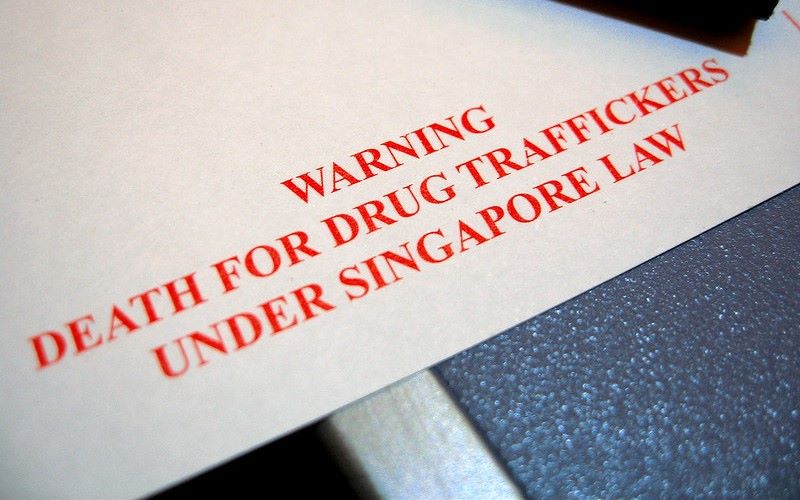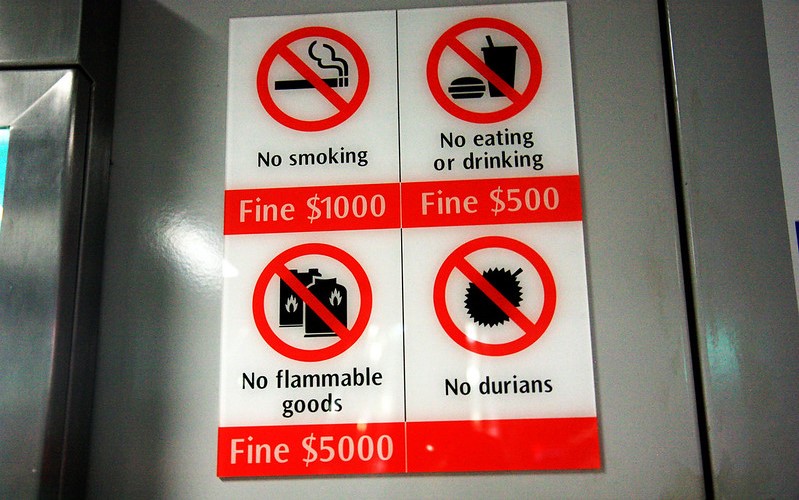Singapore has a reputation for cleanliness and low crimes. Due to the nation’s well-deserved reputation for safety, the authorities had to issue a warning that low crime does not indicate no crime, urging citizens to exercise caution. Nevertheless, as with most fine things, there is a cost associated with the nation’s reputation. Singapore is commonly referred to as “The Lovely City,” however there is a negative connotation associated with this nickname that you do not want to experience. The term alludes to both Singapore’s spotless state and the several varied fines the nation enforces.
Laws that Tourists Should Follow in Singapore
Understanding laws and rules is a crucial part of the travel guide for your first time in Singapore. Tourists are subject to similar laws as locals, and breaking them might result in legal repercussions. Here are some important laws that visitors need to be aware of:
1. Drug Regulations
Singapore has few of the tightest drug regulations in the entire world. Illegal drug possession, usage, trafficking, or production can result in harsh penalties, which also comprise the death penalty.

2. Smoking Regulations
Smoking is not permitted in the majority of public places, including beaches, parks, and indoor spaces like restaurants, bars, and shopping centers. Certain locations have designated smoking zones.So, one must smoke here, or else breaking the law might result in a fine.
Littering Laws- Singapore is renowned for its cleanliness. It comes as no shock that leaving trash behind is a significant infraction. Little objects, like cigarette butts, can result in fines, and larger ones can result in harsher punishments.

3. Alcohol Regulations
Singapore’s drinking age is 18. It is against the law to consume alcohol in public areas including parks, beaches, and streets. Inebriation in public locations carries serious consequences.
4. Traffic Regulations
Singapore has tight traffic regulations, and fines for infractions can be very expensive. Driving while intoxicated, using a phone while driving, running red signals, and speeding are all prohibited.
5. Dress Code
It is important to know about Singapore culture, dress code, eating rituals and other tips while you plan a trip here. Although Singapore does not have a formal dress code, tourists are recommended to dress conservatively when entering places of worship and government buildings.
6. Photography Laws
Singapore has strict photography rules that forbid taking pictures of military installations, governmental structures, and airports. Also, it is forbidden to snap images of people without getting their permission. So, if you are visiting the place for leisure on a Singapore tourist visa, remember to take pictures wisely.
7. Significance of Discipline
Singaporeans give high value to obedience, and someone not following the laws can get physical punishment. In addition to being used to punish criminals, caning is also employed as a form of punishment in the military, at home, and in educational institutions. It should not surprise you that grocery stores sell canes. They are typically made of lean rattan and cost roughly 50 Singapore cents. A plastic hook serves as the handle. These are specifically designed to be used for caning children. Respect the culture of the area and follow its rigorous guidelines for appropriate conduct.
8. Not Flushing Toilet and Urinating in Elevators
In Singapore, not flushing toilets goes beyond just being impolite; doing so is against the law. If you are discovered, be prepared to pay a fine. Urine Detection Devices are installed in elevators, and when they detect the smell of urine, they sound an alert and shut the doors until the police can come and take the offender into custody.
9. Chewing Gum
In Singapore, chewing gum is not permitted, so when you pack your bags, leave it at home. Chewing gum cannot be brought into the country, even despite not being for sale. There are no provisions to carry gum for personal usage in the laws. For first-time offenders, transporting significant amounts of the prohibited product or improperly disposing of gum will result in a steep punishment of up to $1000.
10. Vandalism
Vandalism indeed is a serious crime in Singapore, with fines, jail time, and three to eight canings among the punishments. Damage to both public & private property is caused by the act. Drawing, writing, inscribing, painting, & marking any private item without the owner’s permission are all regarded as crime, as are damaging, destroying, and stealing public property. Placards, banners, flags, and posters, may not be attached.
11. Ordering Food without Determining the Cost
The exciting food scene in Singapore may entice you to visit (many tourists eat at Gluttons Bay or Chomp Chomp Food Centre), but be prepared to negotiate a price for your meal first. There have been instances where customers were overcharged for items like durian fruit or even seasonally available chilli crab.
12. Eating on Buses and Trains
Singapore boasts one of the most technologically advanced transportation networks in the world, making it very simple to move about the entire nation. Therefore, avoid drinking or eating while on a public transportation vehicle because doing so will result in a costly fine. It is okay to snap a mint or take a sip of water if you feel a little claustrophobic; just do not go too far and drink some beer while you commute.
13. Tipping Customs are Uncommon
It may come as a shock to visitors from cultures where tipping waiters and other members of the hospitality industry are customary to realize that Singapore does not have a tipping custom. Instead, the Goods and Service Tax that is automatically added to every payment, will cost you what is essentially the same as a tip.
14. No Jaywalking
Jaywalking is when a person crosses a road erratically outside of designated places. Although many people consider this to be a largely harmless practice, it puts both drivers and pedestrians in grave danger and can lead to unnecessarily long delays on the roadways. To avoid paying fines or receiving other penalties, do not break the law. Keep in mind the rules for safe crossing as well as the locations of the designated crosswalks.
Takeaway
Singapore is an interesting destination to explore, live in, and learn from, but people who are new to the region must make sure they are aware of the local laws & ordinances. These restrictions may affect newcomers’ capacity to blend in with the community and stay clear of unintended infractions that could incur fines or other penalties. Singapore government officials and residents take their laws & regulations extremely seriously, yet the end result is a clean, pleasant city for visitors from all over the world.
